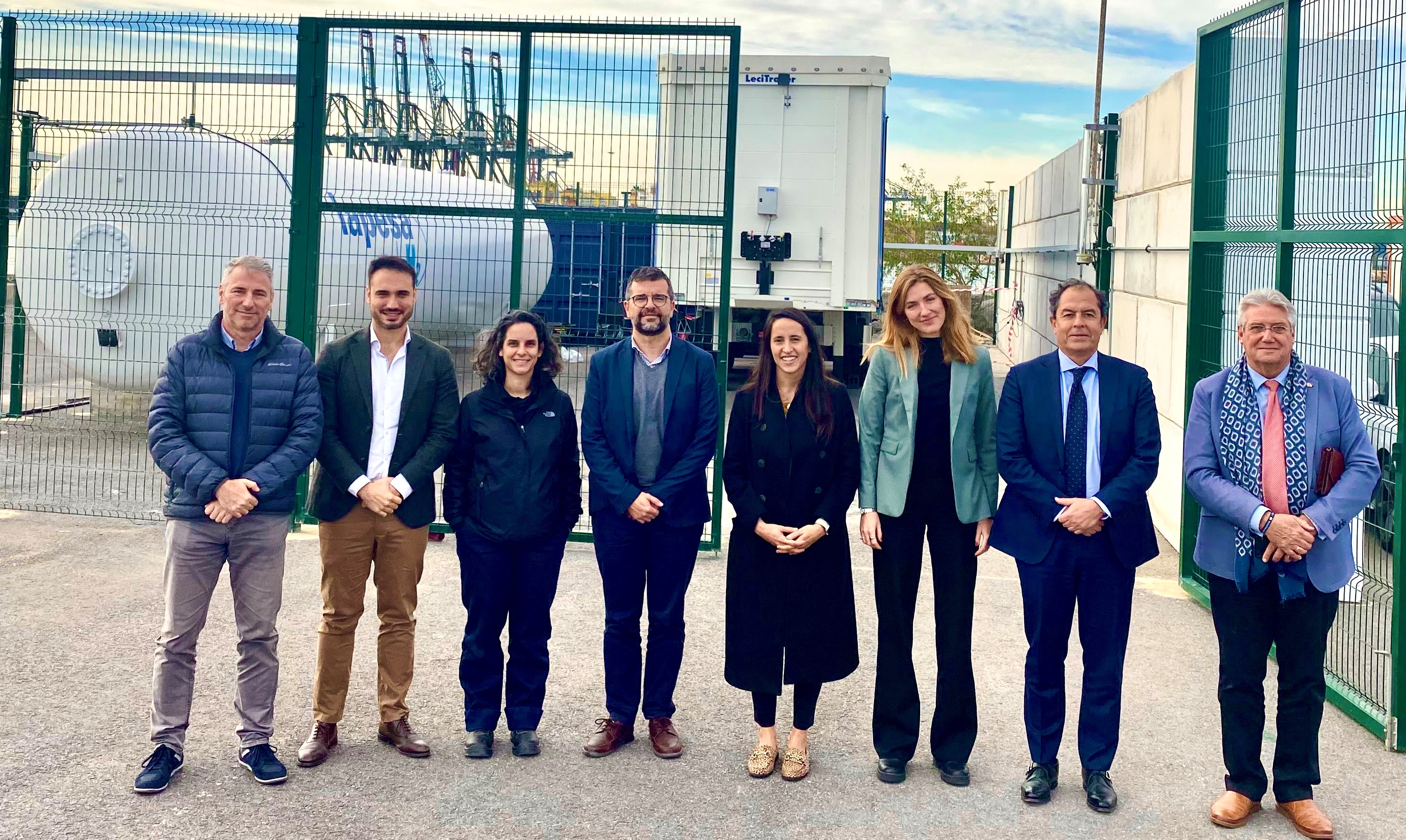Valencia, 1 December 2022. A delegation from the Ministry of Climate and Energy of the Dutch government has visited the hydrogen plant facilities of the Port of Valencia, a pioneering installation in a European port area that will use hydrogen technologies to reduce the environmental impact. The Dutch representatives have shown their interest in establishing channels of cooperation with the Port Authority of Valencia ( PAV) in the development of hydrogen and to see first hand the commitment that Valenciaport is making to this source of energy.
Specifically, the delegation was composed of Rodrigo Pinto Scholtbach, Senior Policy Coordinator European Affairs Hydrogen, Ministry of Economic Affairs and Climate Policy; Carla Robledo, Senior policy advisor, Ministry of Economic Affairs and Climate Policy of The Netherlands; Elisabeth Anne van Kessel, technician at the Dutch embassy; and Eris Nolte, honorary consul of the Netherlands in Valencia.
Valenciaport is committed to the fight against climate change and decarbonisation through different actions. Hydrogen is one of the lines of work being carried out by the Valencian precinct, which has been recognised by the Spanish Government as a benchmark within the framework of the ‘Hydrogen Roadmap’. In fact, the PAV is participating in various international projects such as H2Ports, of which the hydrogen plant forms part, or Green Cranes, in which the adaptation of cranes to sustainable fuels is being analysed. At the meeting, the PAV and Fundación Valenciaport made a presentation of these initiatives and other projects that are being carried out within the framework of the 2030 zero emissions objective.
After the presentation, the delegation went to the hydrogen refuelling station that will supply the fuel needed to guarantee the continuous work cycles of the equipment that forms part of the H2Ports project. One of the pieces of equipment, currently in the construction phase, will be the machinery or prototype of the Reach Stacker vehicle or container stacker that will be powered by this energy and which will be tested at MSC Terminal Valencia. The other piece of equipment will be an adaptation of a conventional 4×4 tractor unit, which will have a fuel cell adapted for testing in loading and unloading operations at Valencia Terminal Europa of the Grimaldi Group.
The hydrogen refuelling station (HRS) has been designed and built by the National Hydrogen Centre, and will include a fixed part that will be dedicated to the reception, storage and compression of hydrogen up to delivery pressure (both already installed at the Bracet de la Xità or Gità), and a mobile part that will store the compressed hydrogen and include a hydrogen dispenser for refuelling port machinery.
This initiative is part of H2Ports -Implementing Fuel Cells and Hydrogen Technologies in Ports-. It is an initiative coordinated by Fundación Valenciaport in close collaboration with the Port Authority, and is financed by the Clean Hydrogen JU programme of the European Union. Its main objective is to test and validate hydrogen technologies on port machinery that will provide applicable and real solutions without affecting the performance and safety of port operations and producing zero local emissions.
The H2Ports project will involve a total investment of more than 4 million euros and involves, in addition to Fundación Valenciaport and the Port Authority of Valencia, the research centres Centro Nacional del Hidrógeno and Atena Distretto Alta Tecnologia Energia Ambiente and the private companies MSC Terminal Valencia, Grupo Grimaldi, Hyster-Yale, Ballard Power Systems Europe, Carburos Metálicos and Enagás.







